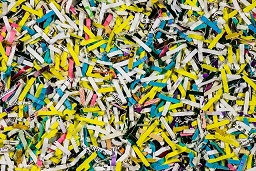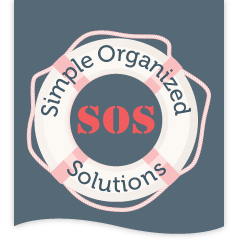 Shredding documents that are no longer needed and contain personal information, has become a part of the spring cleaning ritual. It makes sense, as mid-April is the deadline for filing income taxes. We accumulate copious amounts of paper year-round, and after filing our income taxes is a great time to purge the excess.
Shredding documents that are no longer needed and contain personal information, has become a part of the spring cleaning ritual. It makes sense, as mid-April is the deadline for filing income taxes. We accumulate copious amounts of paper year-round, and after filing our income taxes is a great time to purge the excess.
Shredding Service – Free
Typically, banks and credit unions hold free document shredding events after the tax deadline, some just before. These free events typically occur in April and May. They understand the importance of minimizing the amount of paper in our homes and our businesses. These financial institutions want to help their customers protect their personal information from identity theft.
There are some financial institutions that have secure bins for their customers to deposit their documents year-round. West Community Credit Union has bins in the lobby of each of their locations. You may want to check with your bank or credit union to see if they provide this service.
Shredding Service – Fee
There are companies that provide year-round shredding services for a fee. Some of the more well- known stores are, Office Depot, Staples & The UPS Store. There are also local companies that specialize in shredding services. Some have trucks that will come to your home or business and pickup your documents to shred at their facility. Others will shred your documents onsite.
To Shred or Not to Shred
The rule of thumb is to shred documents with personal information only. Personal information includes social security numbers, account numbers, phone numbers, prescription medication labels (may be easier to use a secure marker-office supply stores carry them), pre-approved credit card offers, etc. Any information that is specific to you that could be used to steal your identity.
There is no need to shred envelopes or documents that contain your name or home address. There is some information that is specific to you that can be found online, such as your name and home address. In St. Louis County, your real estate and personal property tax information can also be found online. I’m not aware of any other personal information that can be found online. If you are unsure about documents that contain other types of personal information, I recommend shredding them, it’s better to be safe than sorry.
You do not have to remove staples but do remove paper clips and binder clips from all documents before shredding. For all other types of unwanted paper, please recycle.
Shred as you go
Shredding unwanted documents as they come in avoids accumulating a backlog. The proper tool to use is a cross-cut shredder. Some shredders available for purchase produce long strips, you don’t want this type. Cross-cut shredders produce tiny bits of cuttings that are difficult to tape together which makes them more secure.
Backlog
As mentioned earlier in this post, we accumulate a lot of paper of all types throughout the year. Managing these mountains of paper can become overwhelming. When you deal with it on a regular basis, such as recycling/shredding it as you go, you keep the piles minimal.
Most of us however, especially the older generations, were taught to keep all receipts. Receipts can be actual paper receipts for everything you buy, paid utility bills, bank statements, investment statements, credit card statements, cancelled checks which we don’t get anymore, etc. No one ever said how long we were supposed to keep these receipts so we kept them forever. Because of this way of thinking, we accumulated quite a backlog.
The best way to deal with a backlog is in small chunks. Unfortunately, you need to review each piece of paper to see if it has personal information, so you know if it needs to be shredded or just recycled. If you end up with a large amount of paper that needs to be shredded, I recommend taking it someplace to have it done. It’s very time consuming to try to do it yourself. You could become overwhelmed and never get through all of it. Fortunately, there are options for disposal as listed above.
Document Retention
Shredding, and recycling important documents is a secure way to dispose of paper we no longer need. There are however, some documents that we need to keep for periods of time specific to each document. Understanding how long to keep each document can be confusing. There are no concrete rules for document retention, only guidelines. There are many sources on the internet that provide guidelines for document retention. Here is a link to one source.
Going Digital
Our succeeding generations have a great opportunity to avoid the accumulation of paper. Since we are in the digital age, no one has to keep all the paper that we were taught to keep from our parents. Pretty much all information we need can now be stored digitally. There are many options and strategies available to jump on the digital bandwagon. For more information on how to go digital, I encourage you to read my blog post, 4 Strategies For Going Digital.
What are your tips and strategies for shredding documents?


